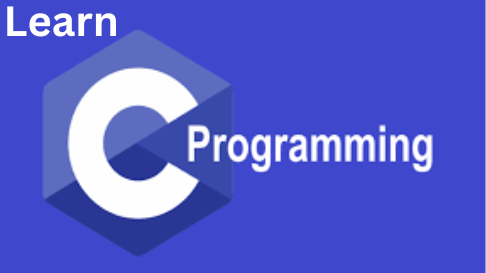Versatility: C++ is a versatile programming language that supports multiple programming paradigms, including procedural, object-oriented, generic, and even functional programming. This versatility allows you to choose the most appropriate approach for different tasks and projects.
Strong Foundation: Learning C++ provides a solid foundation in programming concepts and language design. It exposes you to both high-level abstractions and low-level control, making it easier to learn other languages later on.
Performance: C++ is known for its performance and efficiency. It allows fine-grained control over memory management and low-level hardware interactions, making it suitable for tasks that demand maximum speed and efficiency. example
cpp#include <iostream> #include <vector> int main() { int numIterations = 1000000; std::vector<double> data(numIterations); // Initialize data for (int i = 0; i < numIterations; ++i) { data[i] = i * 0.001; } // Perform calculations double sum = 0.0; for (int i = 0; i < numIterations; ++i) { sum += data[i]; } std::cout << "Sum: " << sum << std::endl; return 0; }System Programming: C++ is commonly used for system-level programming tasks, including developing operating systems, device drivers, and firmware. Its low-level features enable close interaction with hardware.Here's a simplified example:
cpp#include <linux/module.h> #include <linux/kernel.h> int init_module(void) { printk(KERN_INFO "Hello, device driver!\n"); return 0; } void cleanup_module(void) { printk(KERN_INFO "Goodbye, device driver!\n"); }Game Development: The game development industry relies heavily on C++ for creating game engines and performance-critical components. Learning C++ opens doors to a career in this exciting and competitive field: Example
cpp#include <SFML/Graphics.hpp> int main() { sf::RenderWindow window(sf::VideoMode(800, 600), "My Game"); sf::CircleShape player(50); player.setFillColor(sf::Color::Green); while (window.isOpen()) { sf::Event event; while (window.pollEvent(event)) { if (event.type == sf::Event::Closed) { window.close(); } } window.clear(); window.draw(player); window.display(); } return 0; }Cross-Platform Development: C++'s portability makes it an excellent choice for developing applications that need to run on multiple platforms, including desktop, mobile, and embedded systems: Example
cpp#include <QApplication> #include <QLabel> int main(int argc, char *argv[]) { QApplication app(argc, argv); QLabel label("Hello, C++ and Qt!"); label.show(); return app.exec(); }Large-Scale Software: C++ is well-suited for developing large-scale software projects where features like classes, objects, and encapsulation help manage complexity and promote code organization: Example
cpp#include <iostream> #include <vector> class Database { private: std::vector<std::string> data; public: void insert(const std::string& item) { data.push_back(item); } void query() { for (const auto& item : data) { std::cout << item << std::endl; } } }; int main() { Database db; db.insert("Record 1"); db.insert("Record 2"); db.query(); return 0; }Legacy Codebases: Many existing software systems and libraries are written in C++ or rely on C++ components. Learning C++ is essential for maintaining and extending these systems, which continue to play a vital role in various industries.
Embedded Systems and IoT: The fields of embedded systems and the Internet of Things (IoT) often require low-level programming for devices with limited resources. C++ is a preferred language for writing firmware and controlling hardware in these domains.
High-Earning Potential: Proficiency in C++ can lead to competitive salaries, particularly in industries that rely on C++ for critical software development, such as finance, gaming, and aerospace.
Ecosystem and Community: C++ has a large and active community of developers who contribute to libraries, frameworks, and tools. This ecosystem provides resources and support for C++ programmers, making it easier to find solutions to common problems.
Standard Template Library (STL): C++ includes the Standard Template Library (STL), which provides a collection of pre-built data structures and algorithms. Familiarity with the STL can significantly improve code quality and development efficiency.
Object-Oriented Programming (OOP) Skills: Learning C++ helps you master fundamental OOP concepts such as classes, objects, inheritance, and polymorphism. These concepts are widely applicable in modern software development.
Real-Time Systems: C++ is often chosen for real-time systems, including applications in aerospace, automotive, robotics, and telecommunications, where precise timing and performance are critical.
Preparation for Interviews: Many tech companies and interview processes for software development positions include questions related to C++ programming. Learning C++ can enhance your performance in technical interviews.
Conclusion
C++ is a valuable investment in your programming skills and can open up a wide range of career opportunities. Whether you're interested in low-level system programming, game development, embedded systems, or any domain where performance and control are essential, C++ remains a relevant and powerful language to master.



.png)
.png)
.png)

0 Comments